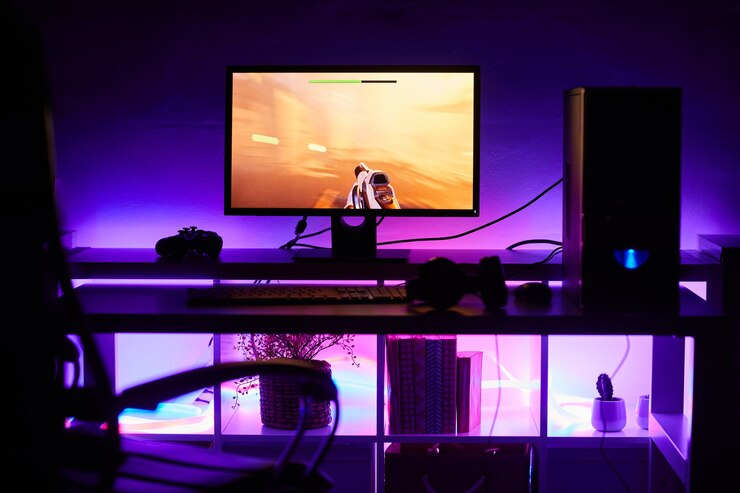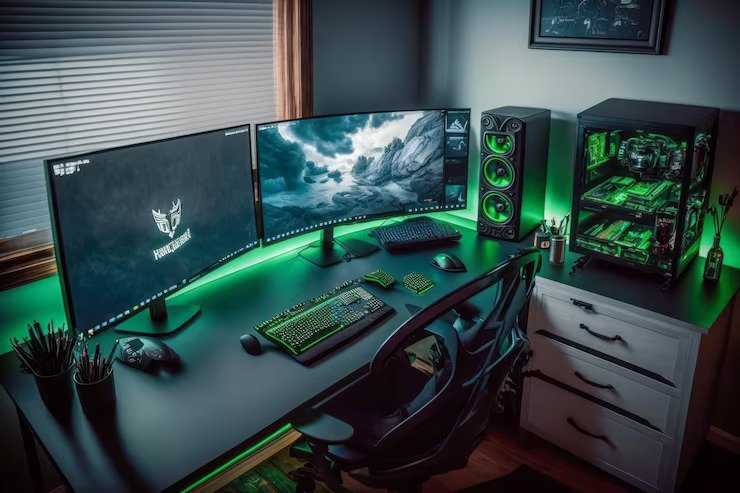10 Things To Remember While Building A Gaming PC
5 Mins Read
Published on: 08 June 2023
Last Updated on: 14 June 2023

toc impalement
If you are a gaming enthusiast who loves to explore new games and finish them, at some point in time, you may have thought about building a gaming PC.
Building a gaming PC gives you immense freedom on which game you want to play when you want to play it, and all at a reasonable price.
Plus, while expensive gaming consoles require other paraphernalia to function and offer no features except for gaming, a gaming PC can be your supercomputer in your hour of need, and your game machine, when you want fun!
Here Are Prime 10 Things To Remember While Building A Gaming PC

Certainly, it’s a blessing to own a gaming computer. And if you are planning to build one, here are ten things you must remember in the process.
1. Know which components are essential and which are not
Building a gaming PC can be costly if you are not careful.
Before you get into the building process, it’s important to research thoroughly and understand which components are essential for your gaming needs and which ones you can prioritize.
So, remember to focus on the key components like the CPU, GPU, RAM, and storage while considering other accessories as secondary options.
2. Set a budget
Building a gaming PC can quickly become expensive if you don’t set a budget. Start with determining how much you will spend on your build. This will help you make informed decisions and prevent overspending on unnecessary components or features.
3. Thorough research
Don’t rush into buying components without doing research. You should read reviews, compare prices, and explore options to find the best components that fit your budget and performance requirements.
4. Compatibility
It is important to make sure that all your components are compatible with each other. Check for socket compatibility between your CPU and motherboard, the power requirements of your GPU, and the supported RAM speeds of your motherboard.
5. Quality over quantity
When it comes to components, it’s important to prioritize quality over quantity.
Opt for reputable brands and reliable models that offer good performance and durability. Investing in high-quality components that will last longer and perform better is better than settling for a cheaper, unreliable alternative.
6. Futureproofing
Consider futureproofing your build by picking components that can be upgraded.
Choose a motherboard that supports future CPU and RAM upgrades and invest in a power supply that can handle additional components down the line. This way, you can extend the lifespan of your gaming PC without the need for a complete overhaul.
7. Be cautious of the cooling system
Gaming PCs can generate a lot of heat, so it’s important to have proper cooling mechanisms in place.
Consider investing in a reliable CPU cooler and ensure proper airflow within your PC case.
You can also add additional case fans or liquid cooling solutions for more efficient heat dissipation.
8. Storage
Adequate storage is very important for a gaming PC. Choosing a combination of fast solid-state drives (SSDs) for your operating system, frequently played games, and a larger-capacity hard disk drive (HHD) for additional storage would be best.
9. Cable management
Another important thing to do is organize and manage your cables properly. This will improve airflow and cooling and also make your PC’s build look clean and professional.
You can use cables, velcro straps, and cable management features in your PC case to keep cables tidy and prevent clutter.
10. Test and optimize
Once you are done assembling your PC, it’s time to test and optimize its performance.
Install the latest drivers for your components, update your operating system, and run benchmarking tests to ensure everything is running smoothly.
You can also Try OneLaunch to gamify your PC’s visual setup.
Things You Will Require For Building A Gaming PC
Building a PC that is dedicated just to gaming purposes is not an overnight process. There are a few things you will need in order to develop a gaming PC. Check them out here:
1. Motherboard
If you have set your foot on building a gaming PC, you must be well aware of what a motherboard is. But if you have the faintest idea, let me tell you what it actually does. A motherboard refers to an enormous circuit board connecting all the other components installed in a PC. Clearly, this has to be one of the first things you will require to develop a gaming system.
2. RAM/Memory
RAM, or the Random Access Memory we have been talking about since our childhood, is essentially the short-term memory of any PC. It is responsible for keeping your user data accessible all the time. Thus, your PC will not need to access another storage device each time you want to optimize that data.
3. GPU/Video Card
The next big thing in a gaming PC is the Video Card or GPU (Graphics Processing Unit). It lets your computer complete complex graphic calculations that ultimately make your gaming PC appealing. When it comes to graphic cards, Nvidia and AMD are the two strongest players. You are free to choose the one that goes with your desired budget.
4. Storage
You understand the term “Storage.” It is where the data of your PC is stored. A gaming PC generally includes games, files, and data, as well as your operating system, in its storage. Prior to today’s gaming systems, the storage comprised a hard disk drive which is now replaced by solid-state drives.
5. PSU
PSU stands for Power Supply Unit, another important component of your gaming system. Although overlooked frequently, this is important to consider. When you use a customized cooling loop or high-end video cards, you might want to ensure you have the PSU with ample wattage.
Wrapping up
Building your gaming PC can be a thrilling experience for you. To enhance this adventure, you can take a few steps. In this blog, we shared a list of ten essential tips to remember while building a gaming PC.
Hopefully, this was helpful.
Read Also:


















Comments Are Closed For This Article